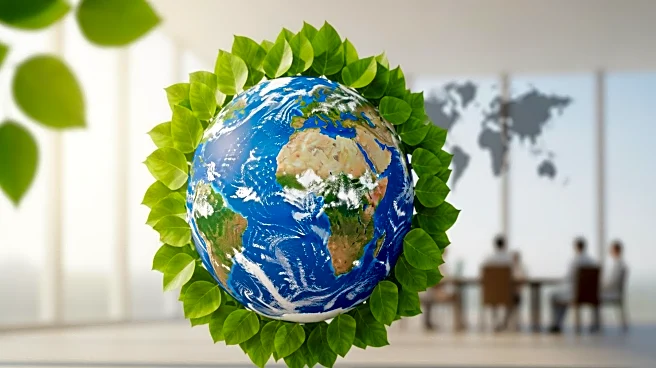What's Happening?
The COP30 United Nations climate conference in Belém, Brazil, has revealed mixed results regarding the implementation of the Paris Agreement. A new U.N. report indicates that while the agreement has led to
significant achievements, such as doubling renewable energy capacity and increasing electric vehicle sales, progress is not fast enough to meet climate targets. The report emphasizes the role of subnational governments and non-governmental organizations in driving climate action. Despite advancements, fossil fuel subsidies remain high, and methane emissions continue to rise. The conference aims to empower local initiatives and address these challenges.
Why It's Important?
The findings from COP30 underscore the urgency of accelerating climate action to meet the Paris Agreement goals. The slow pace of progress poses risks to vulnerable communities and the global economy, as climate change impacts become more severe. The emphasis on local action highlights the potential for cities and regions to lead in climate solutions, offering a path forward even when national efforts stall. The conference serves as a platform to strengthen global governance and ensure that commitments translate into tangible actions, which is crucial for mitigating climate change and fostering sustainable development.
What's Next?
COP30 is set to continue discussions on empowering local initiatives and implementing sustainable solutions. Ethiopia has been announced as the host for COP32 in 2027, which will focus on elevating Africa's climate priorities. The host nation for COP31 remains undecided, with Australia and Turkey vying for the role. The conference is scheduled to conclude on November 21, but negotiations may extend beyond this date. The ongoing dialogue aims to accelerate investment in renewable energy and phase out fossil fuels, with a focus on delivering meaningful results for both people and the planet.










